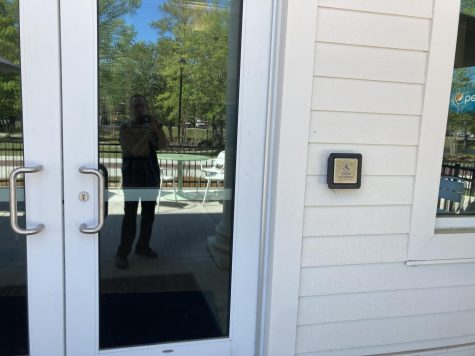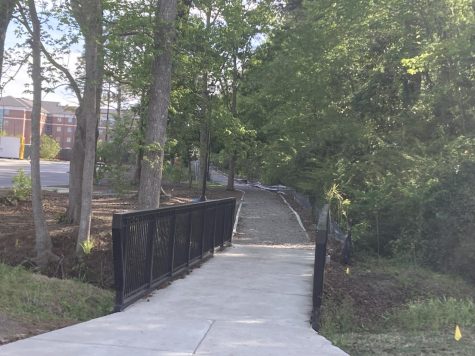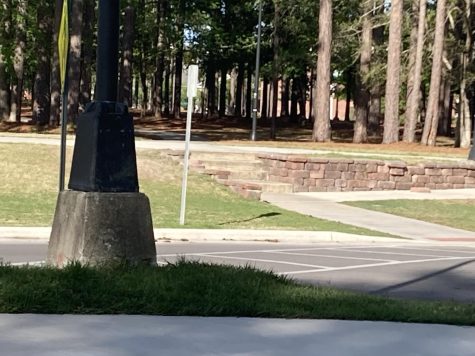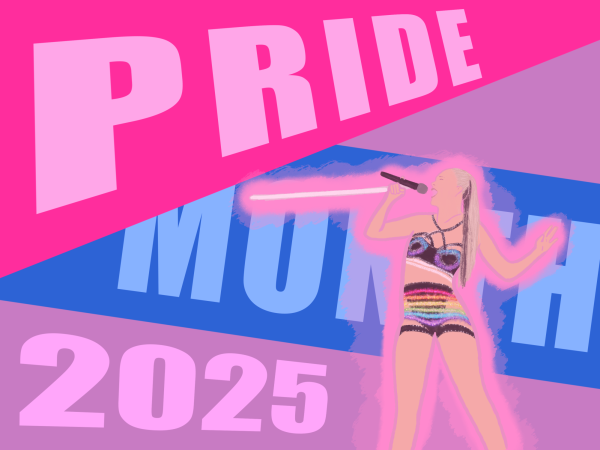OPINION: A follow up on UNCW’s accessibility for neurodivergent students
Accessibility should be a priority on UNCW’s campus because of its status as a public institution. However, the more I move around the campus, the more apparent it becomes that the University is more concerned with aesthetics and saving money than accessibility. Before getting into the logistics of what I’ve been seeing recently, I want to address a meeting I had in lieu of the article I published last fall on accessibility design flaws on campus.
About a month after publishing my article, I met with several administrators from the University to discuss my concerns. Among the issues we discussed was the lack of braille by the elevator in the Fisher Student Center instructing students with visual impairments that the entrance to the bookstore is on the first floor. The administrators said they would notify the correct person and ensure they put a plaque on the wall that had braille. Unfortunately, as of mid-March, this has yet to be remedied. It should not take four-plus months to get a plaque made and installed, especially when the University prides itself on accessibility.

Another significant point I wanted to convey was convenience for neurodivergent students, and this issue comes up again in this analysis of campus accessibility. First, there is the bizarre placement of automatic door buttons on the buildings on campus. Even newer buildings are guilty of poor architectural design that favors aesthetics over convenience. The Shore is a prime example of this; they placed automatic door buttons on the outside of the doors on the wall. Furthermore, there are columns in front of them, which means a wheelchair user or a person with a mobility problem must navigate an opening door while trying to avoid the poorly placed column. If that isn’t challenging enough, the doors shut quickly, which could be dangerous for someone with a mobility issue.
The back or worker’s entrance doesn’t even have one of these automatic doors, despite having a ramp for wheelchair users, which makes no sense accessibility-wise. As a new employee at The Shore and someone with cerebral palsy, this is all very frustrating. Fortunately, I can open the door without too much hassle; but again, we are on a campus that should have accessibility and convenience built into its essence. For example, I would not be able to take a plate of food or drink home without potentially spilling it if I used the back entrance. Going through the front door is just an unnecessary hassle and not convenient. After five hours wiping down tables, I do not want to take more steps than I must. As a result, I leave with nothing.

Moreover, the gravel path behind The Shore leading to and from the freshman dorms is not accessible to wheelchair users and individuals with mobility issues. I know it is meant as a shortcut, but that is the point I’m trying to make; the University should afford wheelchair users and people with mobility issues equal access to all shortcuts available to their neurotypical peers. We run late, too, or do not want to walk the long way due to exhaustion after a long day.

Another example of concern regarding equal access is railings for people who use them for balancing purposes. For example, the stairs directly across from The Shore’s vehicle entrance have no rails. So, if someone like myself is coming from The Shore and wants to head toward Veterans Hall, they would have to go the long way rather than cutting through campus. Another place where people with balancing issues would appreciate railings is Leutze Hall’s entrance facing Chancellor’s Walk. Now that I work at The Shore, there are days when I am coming straight from work to do something in Leutze Hall via Chancellor’s Walk. I must bypass the closest entrance and walk further because there is no railing on the first set of stairs. For people thinking, what about the ramp next to that entrance? That ramp, like most ramps next to the older buildings, is way too steep for wheelchair users and people with mobility issues. As a result, it is dangerous for me to use it.
Finally, I want to address the new desks and chairs with wheels in the classroom. I know this might seem like an excellent modern design, but this is not accessible to all students, especially those with balance issues. Students like myself should not have to struggle with these kinds of desks and chairs or ask other professors for a standard chair. Asking for a traditional chair is not the end of the world, but over time this could create resentment toward people with disabilities. Their peers are most likely 19 to 22 years old, and it might be their first time interacting with someone with a disability. The University is not supplying space to cultivate positive relationships, but one that instantly means more work for neurotypical students just by the presence of someone neurodiverse.
While the University most likely will not implement the changes I mentioned, I will continue to advocate for accessibility on campus until I graduate. After all, accessibility in all forms should be the first priority of a university that prides itself on being for everyone.








